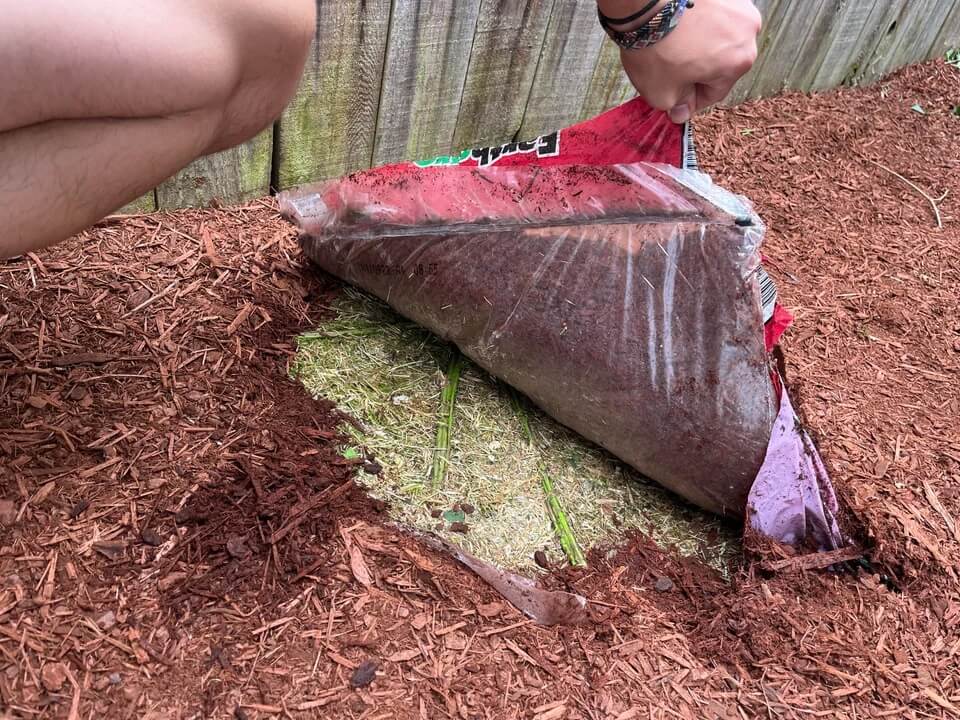In a recent "things that make you go hmmm" moment, a homeowner took to the r/landscaping subreddit to ask for clarification on a bit of possible laziness by their landscaper.
"Landscaper used leftover bags to kill grass. Is this just laziness or is it something that's quite common? Says they ran out of landscaping plastic…" they wrote above a photo of a completely full bag of mulch.
The rest of the pictured area is covered in unbagged mulch, and the bag is held up by the corner, revealing a patch of dying grass underneath.

While several commenters said this practice is common, and some even do it — or a version of it — themselves, an overwhelming amount took issue with the choice.
"Oh get them OUT of your beds! that plastic will break down into so many small pieces that you will NEVER get all of...oh my gosh…that man must hate you," said one.
"It is lazy," confirmed another. "That plastic is not UV rated and will start to go brittle and fall apart. Probably last a year or two, but not as long as probet landscape fabric."
Laziness on the part of the landscaper or not, the real issue seems to be that plastic was left to decompose and pollute the natural ecosystem.
Plastic pollution has become a growing environmental problem, choking our waterways and wildlife literally to death.
Estimates predict that plastics take around 500 to 1,000 years to break down in nature. Further, as they decompose, they create microplastics — tiny plastic particles less than five millimeters long — that have now been found in nearly every part of the world.
If left to break down in the OP's yard, this mulch bag will leach microplastics into the soil, harming flora and fauna before eventually making their way into our rivers, oceans, and even our drinking water.
At least 24.4 trillion microplastics are floating in our oceans, where they act as conduits for pathogens and fish mistake them for food — leading to harm to marine and human health.
"Better than landscape fabric which is pure evil and only holds back weeds for about five minutes," pointed out another Redditor. "After five minutes it just becomes part of the weeds and is impossible to remove, and is just now a hassle forever."
It's true. Landscape fabric is an equally invasive, if not more pervasive, problem. The material is also made of plastic and, as the commenter pointed out, nearly impossible to remove.
Thankfully, some users had a solution to offer.
"We've been putting down cardboard," shared one, "suppresses weeds and is absorbed by the solid within 6 months."
Whether it's in the way we care for our yard or our day-to-day lives, we can all make small changes that will limit the amount of plastic put into the environment, and the environment will be better off for it.
Join our free newsletter for easy tips to save more, waste less, and help yourself while helping the planet.









